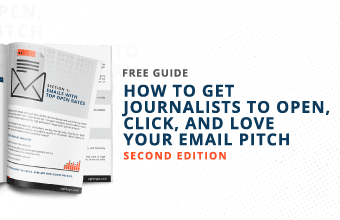Press conferences are glamorous. Account people like to work on them because they are exciting. Clients approve staging one because they expect a large media turnout for their event, which they believe will impress their bosses. But press conferences are dangerous because they are out of the control of the agency and client. And there are few PR blunders worse than a costly press conference gone wrong that can tarnish the agency and client relationship.
Even though I staged managed many successful press conferences during my career (but only when I had hard news to announce, not a “new and improved” product), I nixed many more press conferences than were consummated.
That’s because I believe press conferences are dangerous. Here’s why:
- If the conference is scheduled on a day of breaking news, only a few media reps might show up, and any story covered might not be used because of the breaking news coverage
- You have no control of how many and which media will attend.
- The more media that attends, the greater chance that pointed questions might be asked.
- Your client might be cut out of any story that appears.
- Often media that attends will not write a story but attend for background information.
- Even if there is a significant media presence, reporters might not find anything newsworthy.
- A poor turnout at an extravagant presser can jeopardize agency relationships with a client who will be blamed by corporate higher-ups.
- Relationships with reporters can be soured if they attended a press conference that is not newsworthy, saying it was a waste of their time.
In my opinion, press conferences should be held only when the client has truly important hard news to announce, which most often is not the case, except in the client’s and PR person’s mind. It is the job of the account team to try to deter the client from insisting on a press conference that the account team deems not newsworthy. But in my experience most PR people are afraid to speak truth to a client.
Occasionally, despite the efforts to kill a press conference a client would demand one because of pressure from brand managers or corporate higher-ups. In those instances, a press conference would be held but in the great majority of cases we resorted to what I suggested is a much better way to have a client meet the press than at a Broadway-style press conference. It’s the round table presser.
Here’s why I feel round table press conferences are better:
- They are much less expensive than a full-fledged presser.
- I could hand-pick the journalists to attend, weeding out those who had the reputation of going for the throat.
- Unlike a regular press conference, where media coverage was never guaranteed, these round tables always produced major media coverage because the journalists I selected to attend covered the subject as their beats. In addition, I would have my colleagues try to arrange phoners for long-lead publications or out of town journalists.
Here’s how I would organize the round table presser:
I would invite about a dozen journalists to a luncheon discussion with a client. The invitation list always includes reporters from the wire services, major dailies and relevant trade pubs. In addition, the round table pressers would be augmented with in-person, one-on-one TV and radio interviews and telephone interviews with selected out-of-state journalists, plus a PR news release timed to be released nationally immediately after the lunchtime roundtable concludes.
Other advantages of the round table approach are that unlike a large-scale press conference, round tables eliminate the embarrassment of only a few media reps attending; there is always enough time to substitute a replacement if someone has to cancel, and the considerable savings from these “mini pressers” preserves thousands of dollars that are better used for other PR activities.
My best advice is to avoid using large-scale press conferences whenever possible. Just like expensive press kits that are tossed by journalists, they are a waste of client’s money that can be better used elsewhere.
And importantly, they are less likely to achieve results that better help the client, unlike the more targeted approach of round table pressers.








